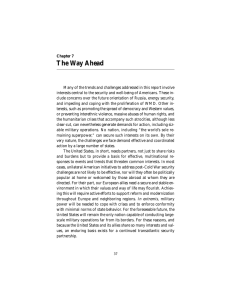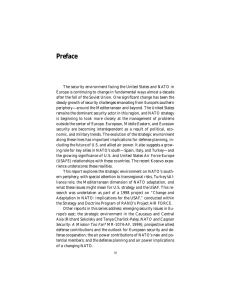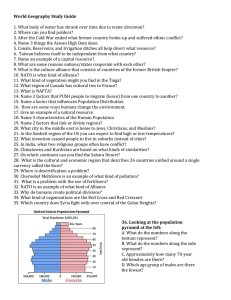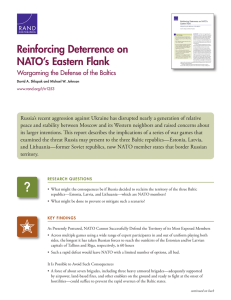EU is Preparing to Start the Creation of its own Defense Force
advertisement
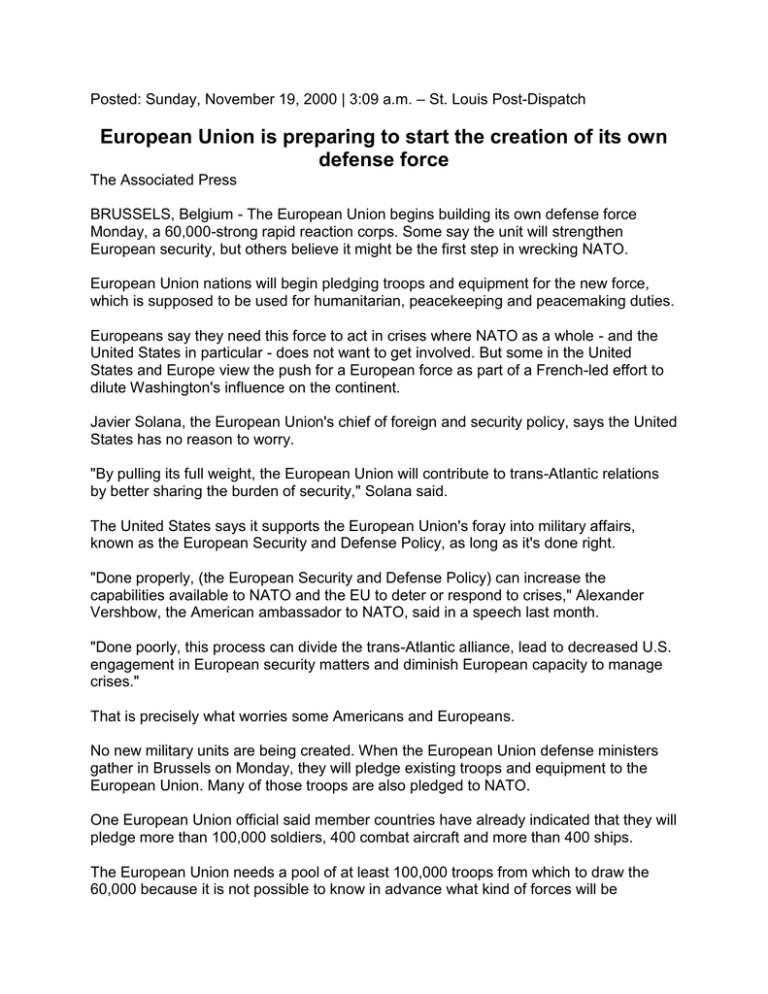
Posted: Sunday, November 19, 2000 | 3:09 a.m. – St. Louis Post-Dispatch European Union is preparing to start the creation of its own defense force The Associated Press BRUSSELS, Belgium - The European Union begins building its own defense force Monday, a 60,000-strong rapid reaction corps. Some say the unit will strengthen European security, but others believe it might be the first step in wrecking NATO. European Union nations will begin pledging troops and equipment for the new force, which is supposed to be used for humanitarian, peacekeeping and peacemaking duties. Europeans say they need this force to act in crises where NATO as a whole - and the United States in particular - does not want to get involved. But some in the United States and Europe view the push for a European force as part of a French-led effort to dilute Washington's influence on the continent. Javier Solana, the European Union's chief of foreign and security policy, says the United States has no reason to worry. "By pulling its full weight, the European Union will contribute to trans-Atlantic relations by better sharing the burden of security," Solana said. The United States says it supports the European Union's foray into military affairs, known as the European Security and Defense Policy, as long as it's done right. "Done properly, (the European Security and Defense Policy) can increase the capabilities available to NATO and the EU to deter or respond to crises," Alexander Vershbow, the American ambassador to NATO, said in a speech last month. "Done poorly, this process can divide the trans-Atlantic alliance, lead to decreased U.S. engagement in European security matters and diminish European capacity to manage crises." That is precisely what worries some Americans and Europeans. No new military units are being created. When the European Union defense ministers gather in Brussels on Monday, they will pledge existing troops and equipment to the European Union. Many of those troops are also pledged to NATO. One European Union official said member countries have already indicated that they will pledge more than 100,000 soldiers, 400 combat aircraft and more than 400 ships. The European Union needs a pool of at least 100,000 troops from which to draw the 60,000 because it is not possible to know in advance what kind of forces will be necessary for any given mission. If six-monthly rotation of forces is considered, that figure must be doubled to more than 200,000. While the European Union is eager to have its own military force – even one as small as 60,000 - it still wants to be able to fall back on NATO's assets. The European Union and NATO are deep into discussions about how the new relationship will work. NATO Secretary-General Lord Robertson insists the talks are making "good progress" in all areas. Other diplomats say the discussions are difficult. More than anything else, the United States wants it to be clear that NATO is the first option for dealing with security crises and is not circumvented by the European Union striking off on its own. The United States prefers that the new European Union military entity use existing NATO planning structures rather than siphoning off resources to set up a separate facility for the European Union, as the French would prefer. In addition, European NATO members who are not also members of the European Union - Turkey and Iceland in particular - worry about promising the European Union automatic access to alliance assets when they are not a part of the European Union decision-making.
